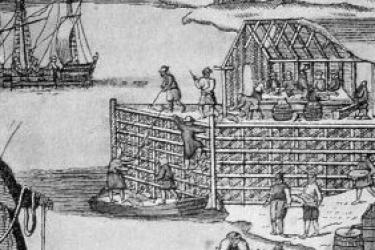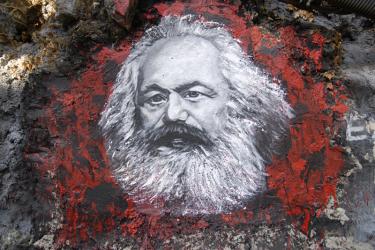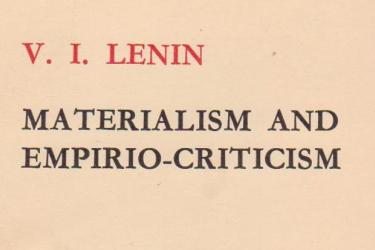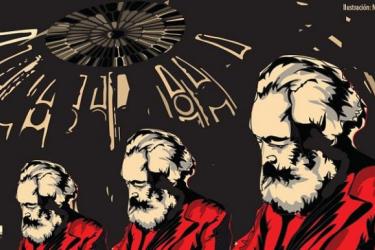John Smith, author of "Imperialism in the Twenty-First Century: Globalization, Super-Exploitation, and Capitalism’s Final Crisis", discusses the realities of imperialism today and what it means for those fighting for a socialist future.
Marxist theory
Michael Pröbsting — Many Marxists discuss the advantages and disadvantages of AI primarily from a technical point of view. Such an approach is the result of a theoretical wrong understanding of the relationship between productive forces and the relations of production.
In this interview with Mark Fischer, Michael A. Lebowitz, the author of 'Beyond Capital: Marx’s Political Economy of the Working Class', argues that 'Capital', taken alone, is one-sided, given Marx’s intention to also write a book on wage-labor.
Michael A. Lebowitz — When capital is in crisis, there are always two options – to give in or to move in. If masses are armed with a clear conception of the socialist alternative, they can turn a crisis in capitalism into the crisis of capitalism. Of course, it is possible that current struggles against the capitalist offensive ultimately may lead to a glorious defeat. It is possible but we must take that chance.
Raju J Das — There is a growing consensus that the society we live in is not working for the vast majority. This society must be radically transformed. And this task of radical transformation presupposes studying society better – that is, in a scientifically rigorous and critical way.
Interview with John Bellamy Foster — Our hope is that, as people mobilize against the environmental conditions produced by the present social system that increasingly threatens their lives, they will also be animated to protect the earth as a home for humanity, carrying out a worldwide ecological and social revolution
Ian Angus — Marxist historians debating the origin of capitalism rarely mention the industry that employed more working people than any field other than farming.
Madelaine Moore — 'Beyond Capital' helps us to understand why capitalism continues to persist despite endless crises, by drawing our attention to the messiness of human beings and the multiple circuits that reproduce capitalism as a complex and contradictory totality.
Given that the immanent drive and constant tendency of capital is to atomize the working class, what are the effects of this tendency? For the atomized worker, all other workers are competitors; all other workers are enemies in so far as they are competing for the same jobs. All other workers potentially stand between them and the satisfaction of their needs.
Mike Treen - The key questions for Marx were understanding why capitalism operates the way it does and whether capitalism is a historically limited system that will reach a limit and need to be superseded.
Jason Devine - Gregory Zinoviev once aptly noted that around “everything that Lenin wrote there is always seething strife. Nobody can remain indifferent to his writings. You can hate Lenin, you can love Lenin to distraction, but you cannot remain neutral.” Nowhere is this truer than his famous 1909 book Materialism and Empirio-criticism: Critical Comments on a Reactionary Philosophy (MEC).
Much of the knowledge, and especially that which comes from academia and media, is extremely problematic. It is often too empirical, lacking the ability to provide general explanations of phenomena under study.











